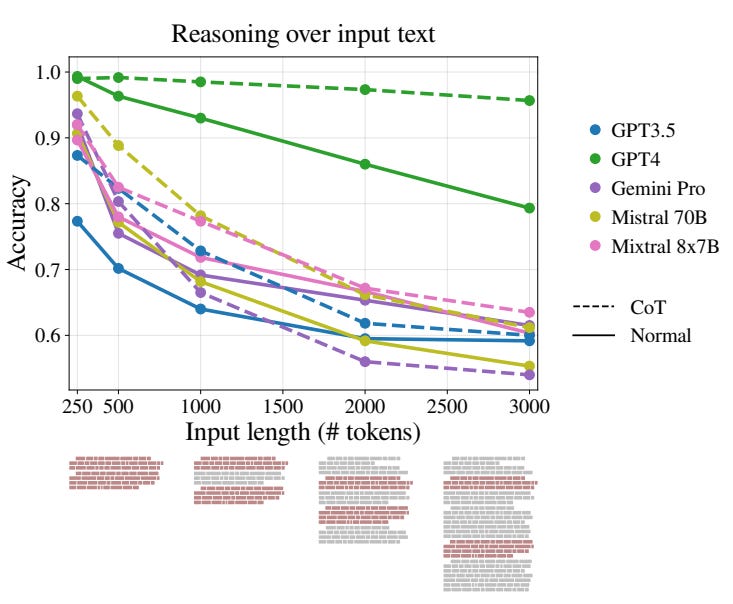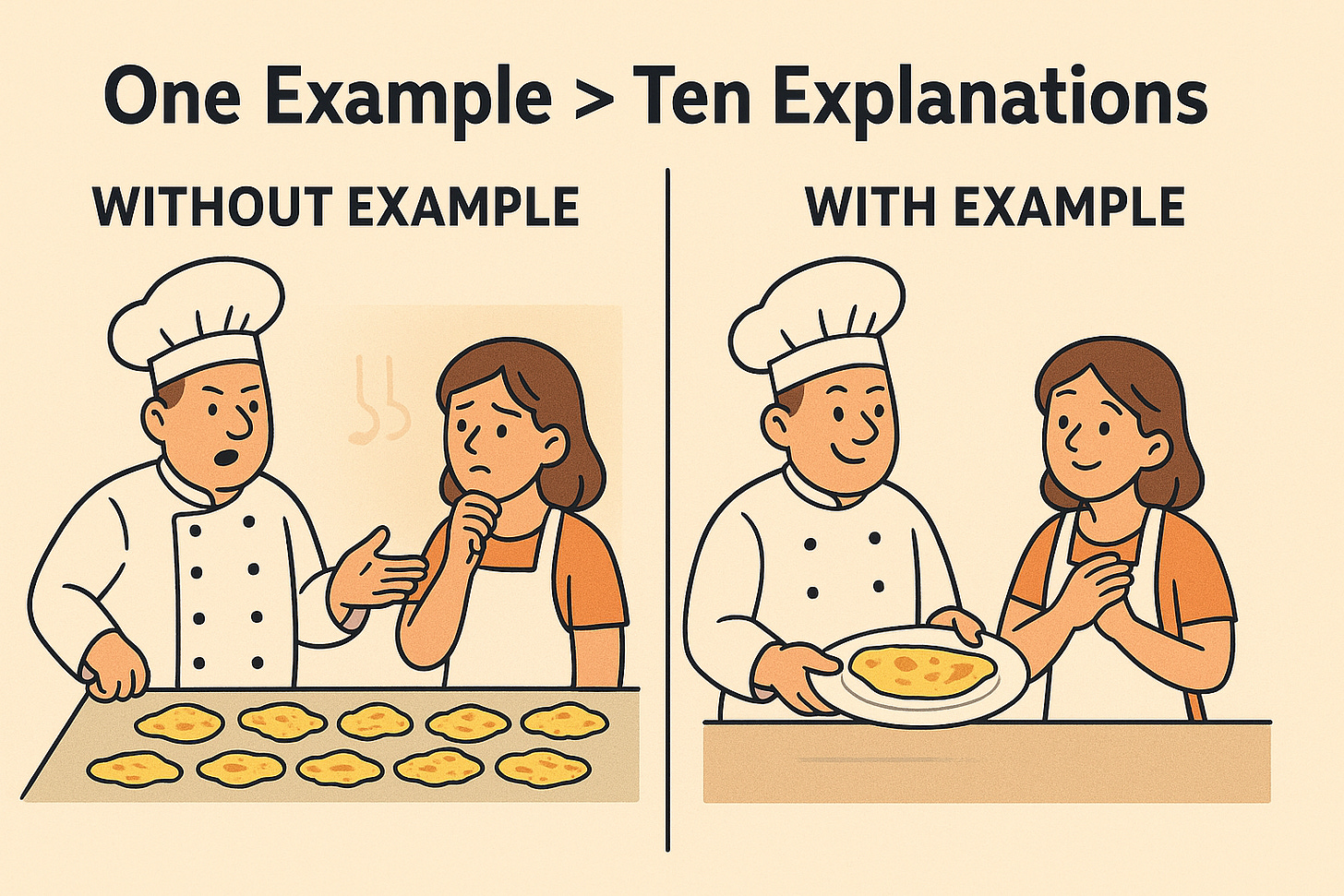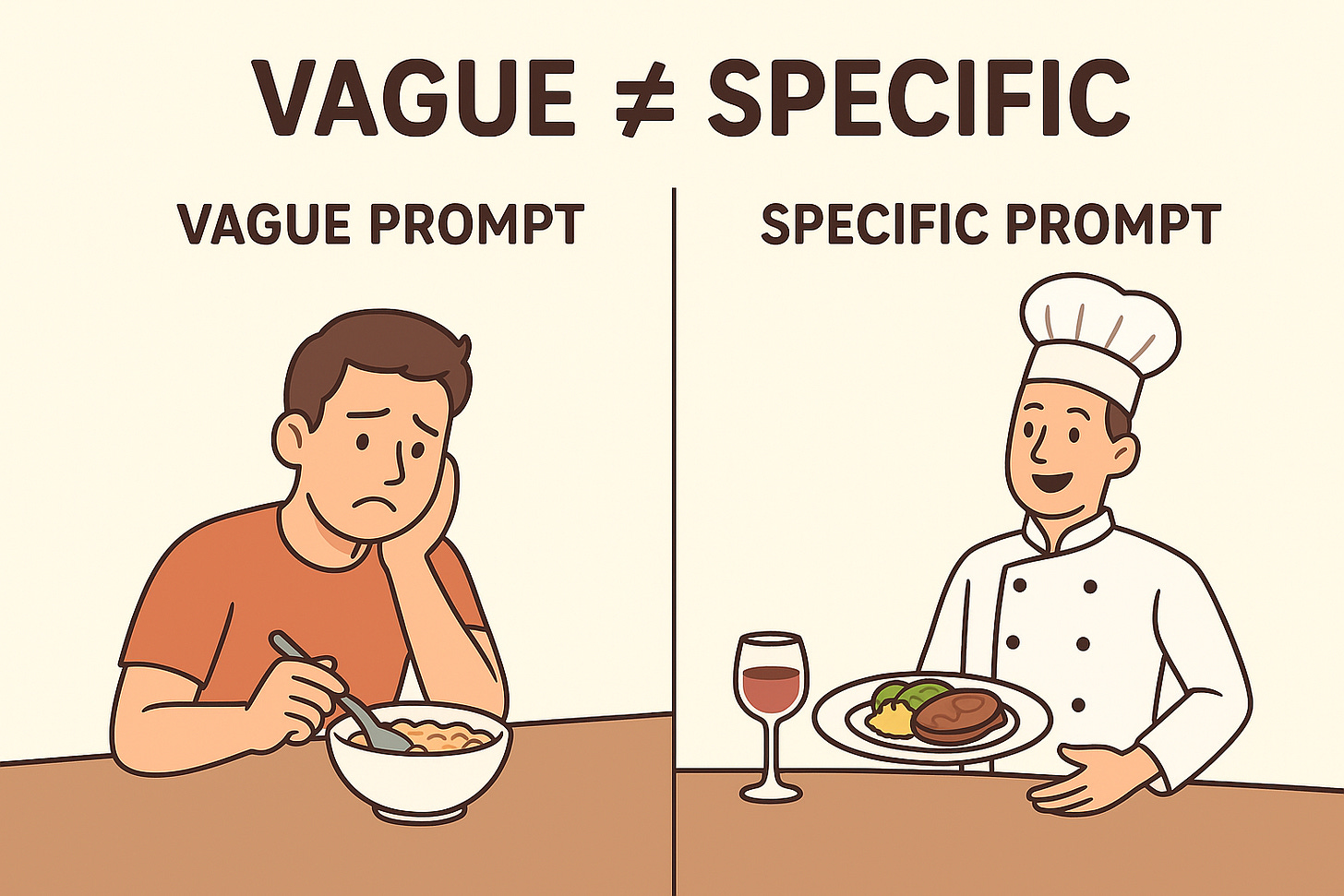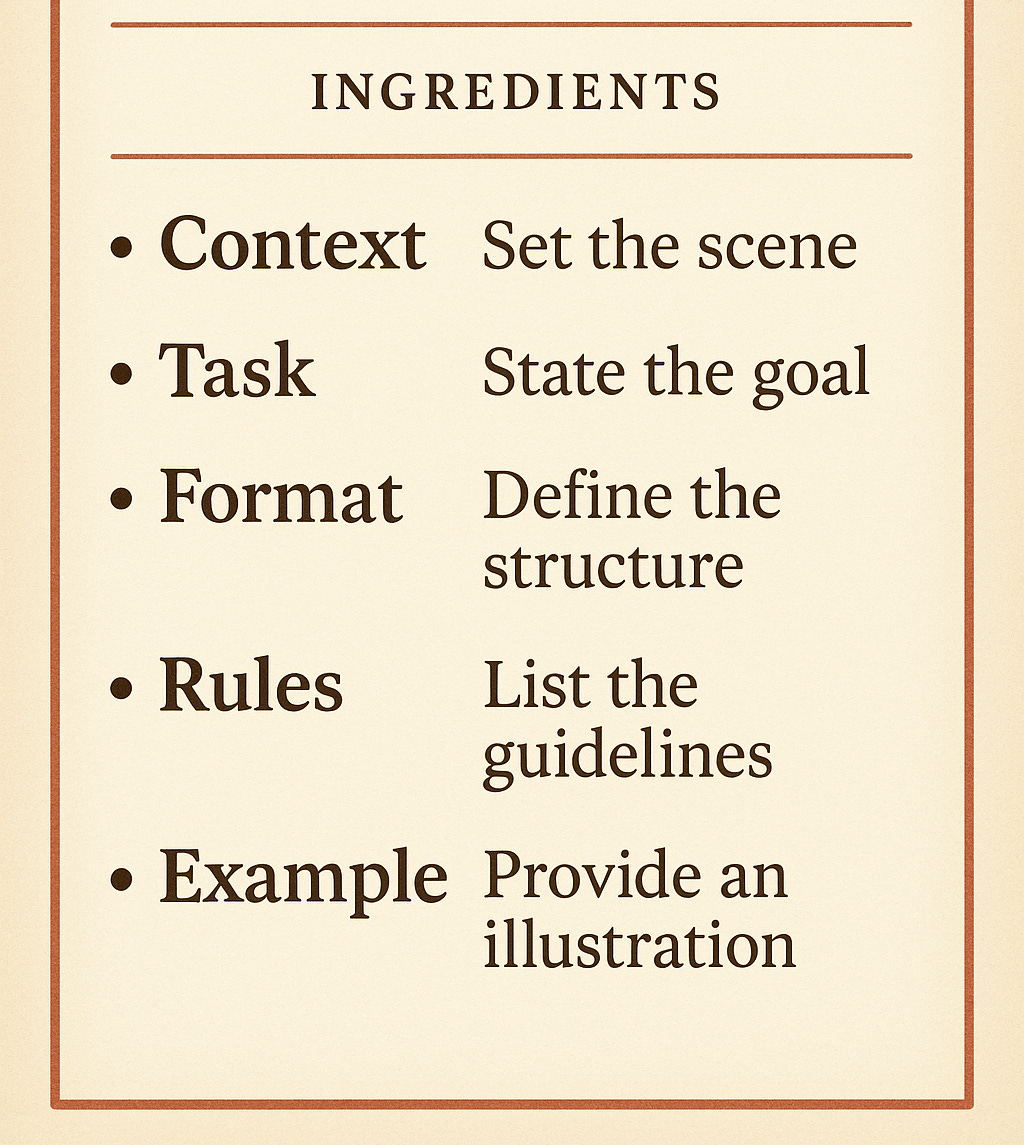How to Tame Your AI [1]- Prompts
Tips to make AI understand what you want
We've all been there. You spend 10 minutes crafting what feels like the perfect prompt, hit send, and get back something that looks like it was written by a confused guy having a bad day
Sounds familiar?
The problem isn't that AI is broken. The problem is you're directing it like you're taking a blurry vacation selfie….when you should be guiding it like you're filming an Oscar-winning movie
Let me try to fix that for you
Shorter Prompts = Better Results
This breaks everyone's brain, but it's true: Long prompts make AI dumber (because of reasoning).
Think of reasoning AI like a goldfish. The more information you dump on it, the more it forgets (neglects) what you actually wanted.
Bad prompt (87 words):
"I need you to write a comprehensive, detailed, and thorough email that professionally communicates to my team about the upcoming quarterly review meeting, making sure to include all the relevant details about timing, preparation requirements, agenda items, and expectations while maintaining a friendly but professional tone that encourages participation."
Good prompt (12 words):
"Write a team email about quarterly review meeting. Include timing, agenda, prep."
Result? The short prompt consistently produces better emails.
Show, Don't Tell (The Magic of One Example)
Here's something that sounds fake but isn't: One good example beats ten mediocre ones.
It's like teaching someone to make a perfect omelet. You don't show them 10 different omelet techniques. You show them ONE perfect omelet.
Without example:
Prompt: "Write product bullet points"
AI Output:
"• Great product features
• Amazing quality
• Best in class"
(Useless generic garbage)
With ONE example:
Prompt:
"Write product bullet points like this example:
• Noise cancellation blocks 99% of background chatter (perfect for open offices)
Now write 3 more for wireless headphones:"
AI Output:
"• 40-hour battery life means charging once per week, not daily
• Touch controls respond to taps, not accidental brushes
• Folds flat to fit in laptop bags under 2 inch thick"
(Actually useful!)
AI Isn’t like Google (It works differently)
Reality check: By default, AI doesn’t “look things up.” It predicts answers based on patterns….which means it can invent details with total confidence.
With tools: Sure, AI can pull in the latest stock prices, sports results, or web data. But even then, its real strength isn’t retrieving facts….it’s helping you interpret them.
Smart approach:
❌ “What’s the Apple stock price right now?”
✅ “Here’s Apple stock data [paste or fetch with a tool]. What trends or risks do you see?”
Be Stupidly Specific
Vague prompts are like asking someone to "make dinner." Cool…enjoy your bowl of cereal now…🙂
Vague prompt:
"Write a report about our sales"
AI thinks:
Report could mean anything. Sales from when? How long? What format? Screw it, I'll just write whatever.
Specific prompt:
"Write a 300-word sales summary for October 2024. Include total revenue, top 3 products, and biggest challenge. Use bullet points."
AI thinks:
Oh, now I know exactly what to do.
The "Spartan" Hack
Want responses without fluff? Use this one weird word: "Spartan"
Seriously….It's like a magic spell that makes AI cut the BS...
Normal prompt:
"Explain why our website is slow"
AI gives you:
A 300-word essay about server optimization, CDNs etc…
Spartan prompt:
"Explain why our website is slow. Be Spartan."
AI gives you:
Too many plugins. Large images not compressed. Hosting plan is basic...
Test Your Prompts Like a Scientist
A prompt that works once is like a lottery ticket that has won once. Meaningless.
The 10-Test Rule:
Run your prompt 10 times
Count how many outputs you'd actually use
If less than 7/10 are good, refine and repeat
The 5-Part Prompt Formula
Every great prompt follows this recipe:
Context (Set the scene)
Task (What to do)
Format (How to deliver it)
Rules (Constraints)
Example (Show don't tell)
Bad prompt:
"Write about our company"
Good prompt using the formula:
Context: You're writing for busy executives who have 30 seconds to understand what we do.
Task: Write a company description.
Format: 2 sentences max.Rules: No jargon, no buzzwords.
Example: "Slack helps teams communicate without email. Over 10 million people use it daily."
Conclusion
These days companies winning with AI aren't the ones with the biggest budgets or fanciest tools; they’re the ones that know how to talk to AI like a sharp intern who just needs clear instructions. So let’s start optimizing our prompts from the drafting phase itself
Thats all for today, I've got more AI stuff brewing….will comeback with few soon….Bye bye 🫡








Loved this! ... PS: Being Spartan!